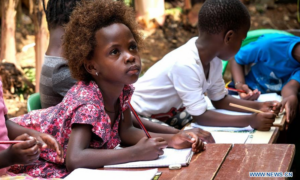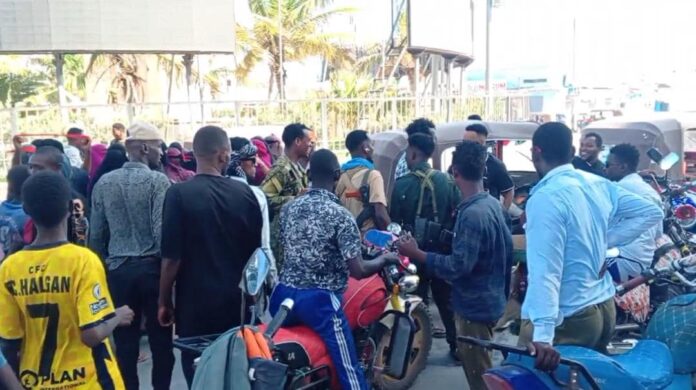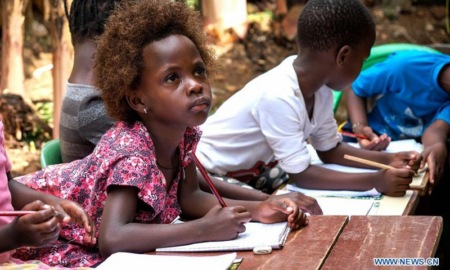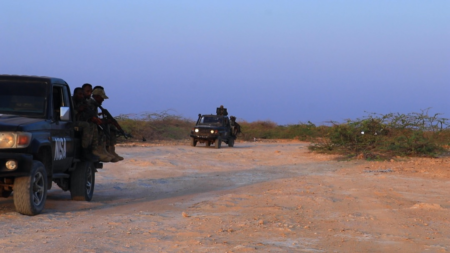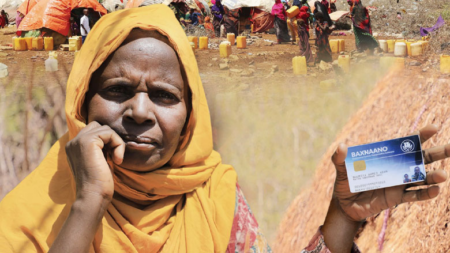The Somali Journalists Syndicate (SJS) has raised alarm over a sharp escalation in threats, arrests, and intimidation targeting journalists in Mogadishu.
It described it as a serious assault on press freedom and constitutional rights.
Within just 48 hours, SJS documented 15 incidents involving arbitrary detentions, equipment seizures, and threats primarily by the National Intelligence and Security Agency (NISA) and the Somali Police Force.
Crackdown on Media Amid Political Unrest
The crackdown comes as Somali journalists attempted to cover public demonstrations, political gatherings, and street interviews.
On 22 May, three journalists—Abdullahi Yusuf Hassan, Mohamed Hassan Geedi, and Yahye Mohamud Hersi—were detained.
While they were reporting on a women-led protest at Zoobe Junction against the demolition of market stalls.
Their footage was deleted, and they were released only after agreeing not to publish any related content.
Online Journalists Are Targeted
On 23 May, online journalist Ali Maalin Nuur was arrested in South Galkayo, Galmudug State, after publishing a Facebook video alleging illegal payments demanded by security forces.
He was detained without formal charges and released after being coerced into deleting his report—an act SJS calls a violation of due process and press rights.
Why are the Somali Journalists Targeted?
In a separate incident on 24 May, four journalists from Shabelle TV and SYL TV were detained by NISA agents for collecting public opinion on President Hassan Sheikh Mohamud and recent political developments.
They were threatened with violence, interrogated without formal booking, and forced to delete recorded interviews.
Another wave of arrests on the same day saw seven more journalists from Somali Cable TV, Goobjoog Media, and Five Somali TV detained and stripped of their recording equipment.
While conducting similar interviews about the 2026 elections.
Forbidden Interviews in Somalia
The Somali journalists were told that public opinion collection on political matters is now prohibited.
Plain-clothed NISA agents also disrupted journalists Anisa Ahmed Mohamed and Masud Abdirahman Yusuf from Dalbile TV on two separate occasions, preventing them from interviewing citizens on Maka Al-Mukarama Street—a known hotspot for civic engagement in the capital.
Growing Suppression of Independent Media
The increasing presence of armed, plain-clothed intelligence agents in Mogadishu.
Especially along Maka Al-Mukarama Road and KM4, is being viewed by media advocates as an alarming effort to suppress independent journalism and restrict civic expression.
Prominent activist and tuk-tuk driver Sayid Ali (aka Saan Miyaa), who publicly criticized NISA’s intimidation of civilians, was also arrested over the weekend.
Press Freedom Under Threat
The Somali Journalists Syndicate has strongly condemned the government’s actions.
It called for the immediate cessation of threats and harassment of media professionals.
SJS emphasized that freedom of the press is a cornerstone of democracy, particularly in the lead-up to the 2026 federal elections in Somalia.


